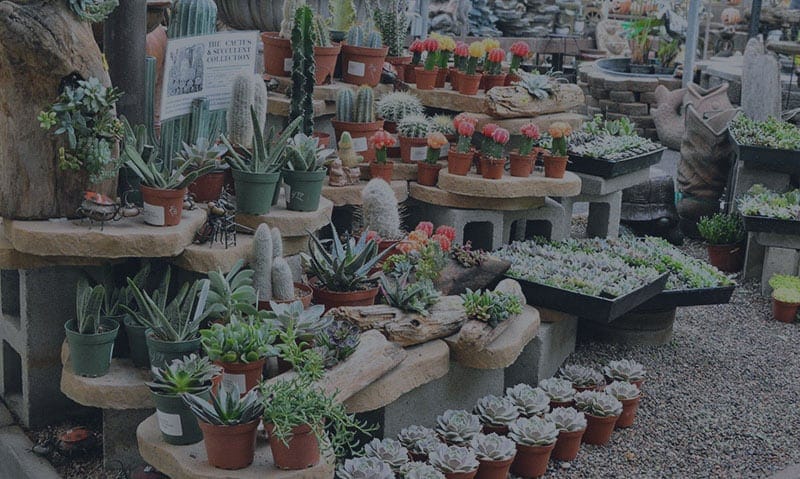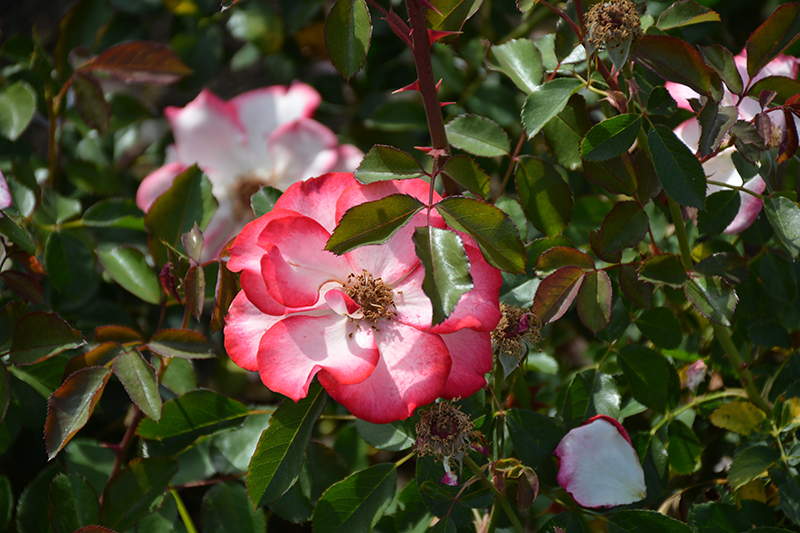Height: 5 feet
Spread: 5 feet
Sunlight:
![]()
Hardiness Zone: 4b
Group/Class: Floribunda Rose
Description:
Bushy and upright, this floribunda rose produces stunning ivory white blooms with golden centers and contrasting red edges creating tremendous visual impact when massed in the garden; blooms repeat all season long;
Ornamental Features
The Betty Boop Rose features showy lightly-scented semi-double white flowers with gold eyes and red edges at the ends of the branches from late spring to early fall. The flowers are excellent for cutting. It has dark green deciduous foliage which emerges dark red in spring. The glossy oval compound leaves do not develop any appreciable fall color.
Landscape Attributes
The Betty Boop Rose is a multi-stemmed deciduous shrub with an upright spreading habit of growth. Its average texture blends into the landscape, but can be balanced by one or two finer or coarser trees or shrubs for an effective composition.
This shrub will require occasional maintenance and upkeep, and is best pruned in late winter once the threat of extreme cold has passed. It is a good choice for attracting bees to your yard. Gardeners should be aware of the following characteristic(s) that may warrant special consideration;
- Insects
- Disease
The Betty Boop Rose is recommended for the following landscape applications;
- Accent
- Mass Planting
- Hedges/Screening
- General Garden Use
Planting & Growing
The Betty Boop Rose will grow to be about 5 feet tall at maturity, with a spread of 5 feet. It tends to fill out right to the ground and therefore doesn't necessarily require facer plants in front, and is suitable for planting under power lines. It grows at a fast rate, and under ideal conditions can be expected to live for approximately 30 years.
This shrub should only be grown in full sunlight. It does best in average to evenly moist conditions, but will not tolerate standing water. It may require supplemental watering during periods of drought or extended heat. It is not particular as to soil type or pH. It is highly tolerant of urban pollution and will even thrive in inner city environments. This particular variety is an interspecific hybrid.


